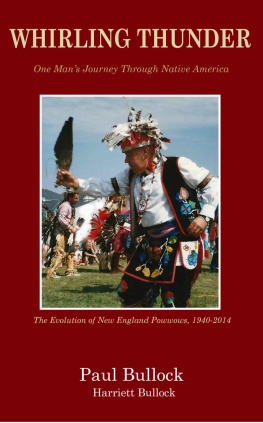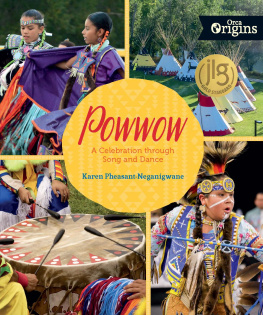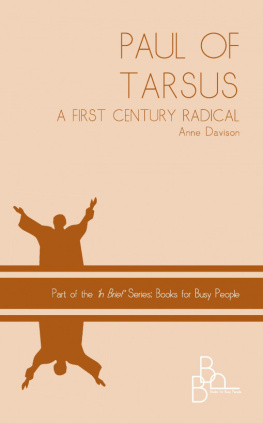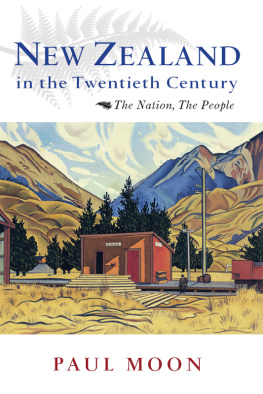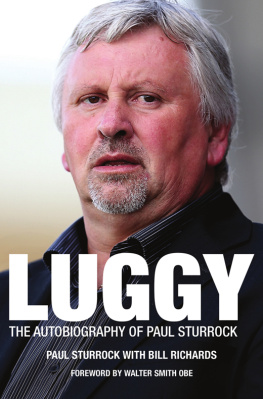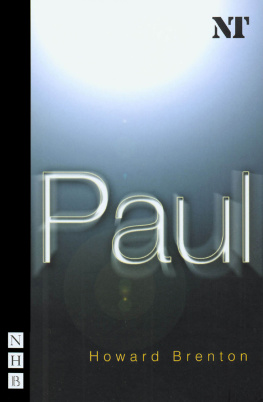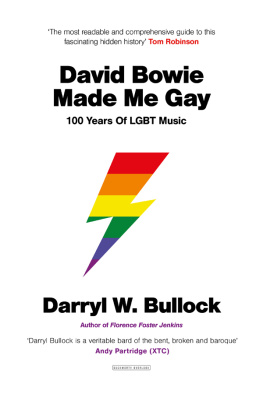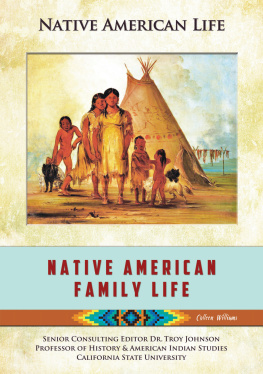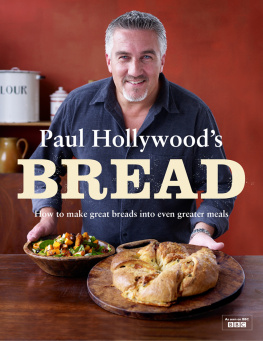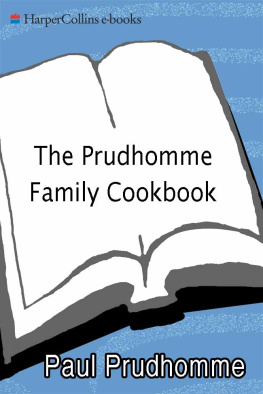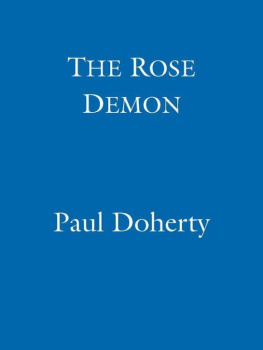FOREWORD
For half a century Paul Bullock and his family have been committed to raising awareness about the Native people of New England. Paul, known as Whirling Thunder , grew up in Bristol, Rhode Island and is of part Wampanoag ancestry. He came into the powwow scene as a boy in the 1940s, performing from the time he was 11 years old. By the late 1960s, when he and his six children had become the Paul Bullock family dancers, teaching dances and songs to others, they had made a decision that they would emphasize Eastern dance steps and etiquette at New England powwows. They sought out Eastern Native people as instructors in dance, etiquette and regalia. At a time when the pervasive Plains look remained popular in the East, Paul worked patiently to raise consciousness about southern New England Native traditions.
In addition to active participation at powwows, Paul founded a company, The Wandering Bull, to market craft supplies, books, music and regalia both at the powwows, in a trading post in Attleboro, Massachusetts, and through on-line web sites. In the face of strong Pan-Indian influences, he tried to change perceptions through the example of his own familys dress, and by making available the materials and patterns for others to create Eastern-style regalia. Eventually, The Wandering Bull became the largest retail outlet for Native craft supplies in New England.
One of my lasting memories of Paul occurred at a powwow given by the Native students of Brown University. The small Native student group wished to make their presence more visible on campus by sponsoring an annual powwow, to which all Native organizations and dancers of the region were invited. I was seated in the audience, when the head student dancer invited me down to be one of the honorees in an honor dance. I was very nervous, not sure of exactly what was expected of me, until Paul danced by me and dipped his fan to me in acknowledgement, and from then on I felt as if I was in the right place. Paul had that wonderful capacity to understand and utilize the etiquette of the dance, and to show others how to use it. His innate courtesy and that of Native cultural traditions merged into one. He was a dedicated, purposeful individual whose influence during the long, dry period of the mid-twentieth century, before federal recognition of Eastern tribes, helped reinforce the sense of self of Native New Englanders.
Barbara A. Hail
Curator Emerita, Haffenreffer Museum of Anthropology, Brown University
INTRODUCTION
This labor of love started in 2001 when Ms. Meg Worthing of York Beach, Maine approached Paul requesting his help with a project for her Culture, Tradition and Diversity course at the University of Southern Maine where she was studying in a Masters program. Since this sparked a long held interest, Paul enthusiastically accepted her request.
In part, the Foreword in the original transcription was as follows:
This is just the beginning!!! As you all know Im the great procrastinator. For years Ive been talking about writing a book about the evolution of Indian Powwows in New England during my lifetime. My entire family has offered to record, transcribe, or word process my endeavors and I have neglected to follow through.
This abbreviated venture comes about through the kindness and strong encouragement of Ms. Meg Worthing of York Beach, Maine who asked me to talk about my life story as part of a course at the University of Southern Maine, Culture, Tradition and Diversity .
We spent a number of hours with the tape recorder she transcribed it for me and sent the copy to me (on the internet!!). Harriett and I corrected the time sequence and attempted to correct memory lapses, etc.
Meg has suggested using this as a basis and adding additional chapters
Some of the future writings will elaborate on stories already covered and some other things will be covered as well .
From that time on we worked on the future chapters some times more diligently than others but we enjoyed the reliving of some of the happiest times of our lives. Unfortunately completion was still in the future when The Creator came to take Paul on his next journey on February 18, 2014.
With the help of my family, I have attempted to complete what had been started although we know that there were many more details that only Paul would remember and many more people who had an impact on the culture and on Paul. Completing this work has been my privilege and my pleasure - any omissions or inaccuracies, although unintended, are mine.
It is our hope that the reader will enjoy this and learn something about the Native culture and the importance of Powwows in New England.
Harriett Bullock
June 2014
DEDICATION
This book is dedicated to all those who have listened intently at a Powwow, or danced their hearts out in the circle, who have labored long and hard over a craft project or item of regalia, who have sung the old traditional songs, who have spent time researching a project, who have been respectful and kind to others, who have listened, learned and shared with others. To all those good and kind people we offer our heartfelt gratitude.
It has been our honor and our privilege to see this project to completion. This project, which has been the dream of Whirling Thunder for many years, is meant to enlighten and enrich the lives of others as Native Cultures have enriched ours.
This humble man helped shape and now chronicle the landscape of Powwows in New England and beyond. This is his story the story of the evolution of Powwows and of his life a life of honesty, integrity, and tireless pursuit of enlightenment and education.
Anyone of you who have attended a Powwow at which he was Master of Ceremonies can attest to his desire to educate and share Native Culture. He spent considerable time over the years doing school programs for it is the children who are the future and it is the children who need to learn and have an appreciation of those around them.
His legacy and his wisdom continue in the lives of those he touched and those he loved.
ACKNOWLEDGMENTS
With grateful appreciation we acknowledge the assistance of Meg Worthing, student, teacher, and friend, without whom this book may never have been written. Meg helped get thoughts organized and words on paper. This dream of Whirling Thunders may have continued to be just a dream without Megs encouragement.
Barbara Hail, Curator Emerita, Haffenreffer Museum of Anthropology, played a valuable role guiding and encouraging along the way. Her knowledge of the Culture and interest in the project were instrumental in keeping the wheels turning.
Jack Szelka, photographer extraordinaire, has shared some of his photographs which have been his lifes work.

